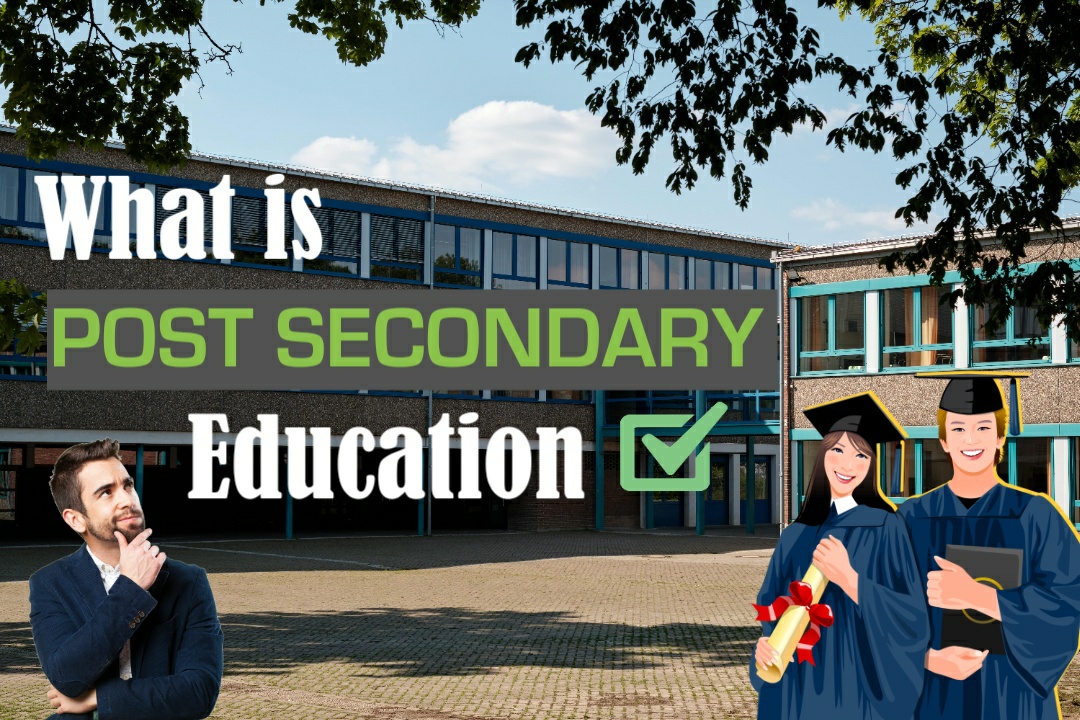

In a world where knowledge is power, Post Secondary education stands as the gateway to success. But what exactly is post secondary education, and why is it so crucial in today’s society?
Definition of Post Secondary Education:
Post secondary education refers to any form of learning that takes place after completing high school. It is a crucial phase where individuals delve deeper into specific fields, acquiring advanced knowledge and skills that prepare them for their chosen careers.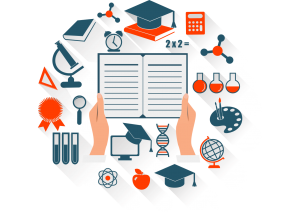
Importance of Post Secondary Education
The significance of post secondary education cannot be overstated. It not only provides specialised knowledge but also fosters personal growth, critical thinking, and adaptability—the very qualities sought after in the dynamic professional landscape.
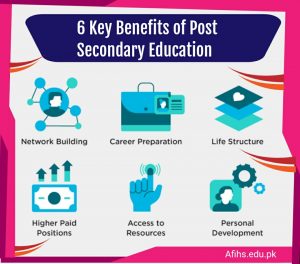
Universities
Universities offer a broad range of undergraduate and graduate programs. They are known for their academic rigor and emphasis on theoretical knowledge, making them ideal for those aspiring to enter professions that require in-depth expertise.

Colleges
Colleges, on the other hand, focus on practical skills and hands-on training. They often provide shorter, more targeted programs, catering to specific industries and professions.
Vocational and Technical Schools
Vocational and technical schools are designed to equip students with practical skills for specific trades or professions. These institutions are invaluable for those seeking a direct pathway to employment.
The journey into post-secondary education starts with the admission process. Different institutions have varying requirements, including academic records, letters of recommendation, and extracurricular achievements.
Standardized Tests
Many institutions require standardized tests such as the SAT or ACT as part of the admission process. These tests assess a student’s readiness for higher education and help institutions make informed decisions.

Application Essays
Application essays provide students with an opportunity to showcase their personality, goals, and why they are a perfect fit for a particular program. A well-crafted essay can significantly impact the admission decision.
Undergraduate degrees are the foundation of post-secondary education, providing a broad overview of a chosen field. Common degrees include Bachelor of Arts, Bachelor of Science, and Bachelor of Business Administration.
Graduate Degrees
For those seeking advanced knowledge and specialization, graduate degrees such as Master’s and Ph.D. programs offer an in-depth exploration of a specific subject.
Certificate Programs
Certificate programs focus on developing specific skills and are shorter in duration than degree programs. They are ideal for individuals looking for targeted training in a particular area.
Tuition and Fees
One of the challenges of post-secondary education is the cost. Tuition and fees can be substantial, varying depending on the institution and program. However, the investment is often justified by the potential long-term benefits.
Scholarships and Grants
To alleviate the financial burden, many students seek scholarships and grants. These can be based on academic achievements, talents, or specific criteria related to the field of study.
Student Loans
In some cases, students opt for student loans to cover their educational expenses. It’s essential to carefully consider the terms and implications before taking on a loan.
Academic Pressure
The academic demands of post-secondary education can be intense. Balancing coursework, exams, and assignments requires effective time management and dedication.
Financial Strain
For many students, managing finances becomes a significant stressor. Striking a balance between work and studies is often necessary, adding another layer of complexity.
Work-Life Balance
Maintaining a healthy work-life balance is challenging during this phase. Juggling academic commitments with personal life and potentially part-time work requires resilience.

A. Increased Job Opportunities
Post-secondary education significantly expands job opportunities. Many professions today require at least a bachelor’s degree, making it a fundamental requirement for career entry.
B. Higher Earning Potential
Statistics consistently show that individuals with higher levels of education tend to earn more over their careers. The investment in education often pays off in terms of increased earning potential.
C. Personal Growth and Development
Beyond academic and professional benefits, post-secondary education fosters personal growth. It encourages critical thinking, effective communication, and a broader worldview.
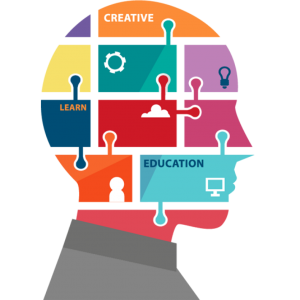
In the digital age, online learning has gained prominence. It offers flexibility and accessibility, allowing individuals to pursue education while managing other commitments.
Apprenticeships provide a hands-on approach to learning. They involve practical training under the guidance of experienced professionals, offering a direct pathway to employment.

Short-term skill development programs cater to those seeking specific, practical skills without committing to lengthy academic programs. These programs are often industry-focused and directly.
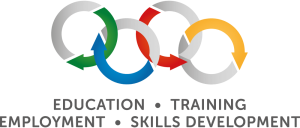

Check Our Other Articles:
Al-Fateh College
Lane 07,Park Road<Islamabad
051-8891008
umerchatha444@gmail.com
Mon – Fri 9:00A.M. – 5:00P.M.